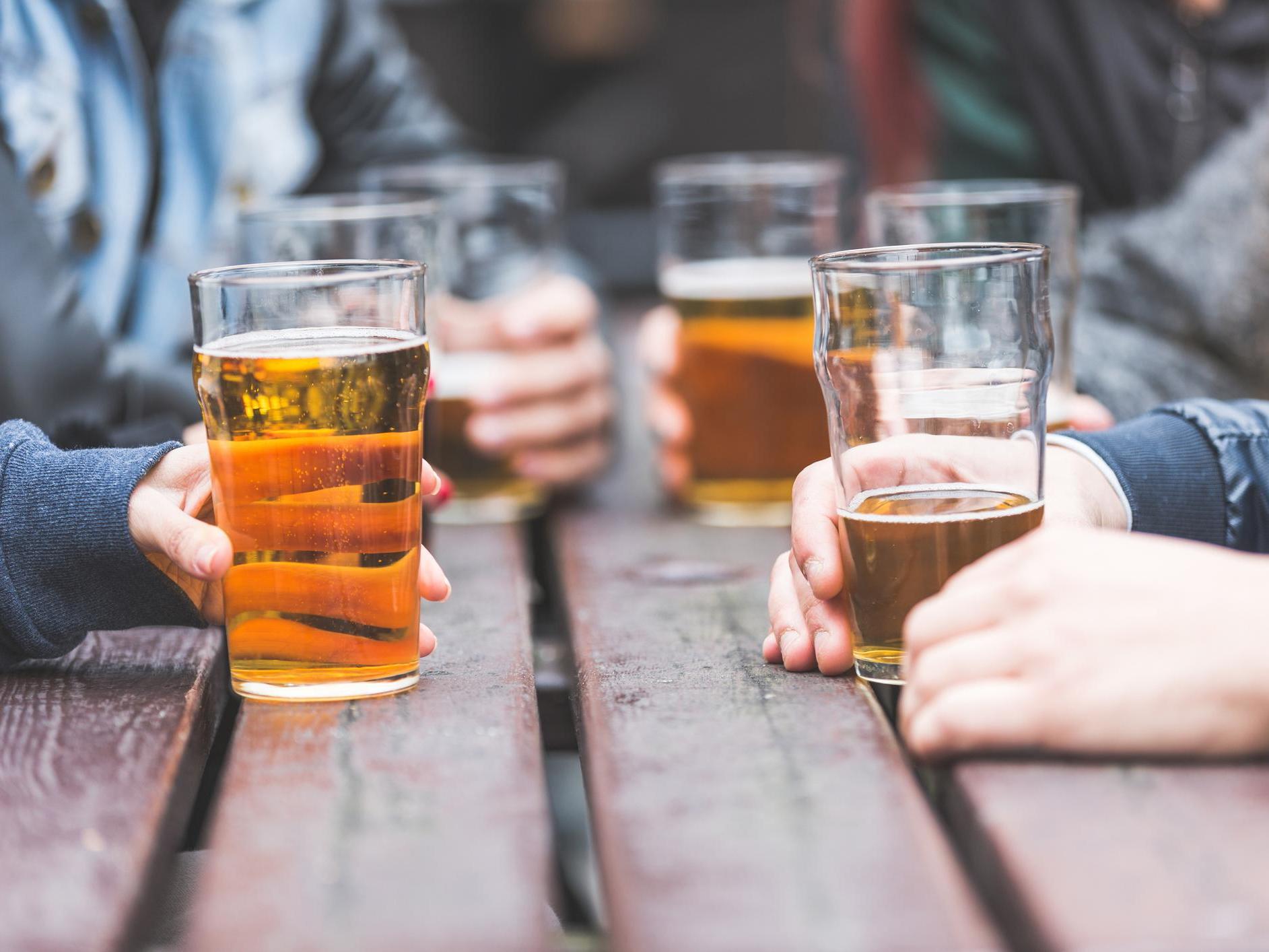Almost three quarters of drinkers unaware of links between alcohol and cancer, poll claims
Nearly 80 per cent say they will continue to drink after learning of risk

Your support helps us to tell the story
From reproductive rights to climate change to Big Tech, The Independent is on the ground when the story is developing. Whether it's investigating the financials of Elon Musk's pro-Trump PAC or producing our latest documentary, 'The A Word', which shines a light on the American women fighting for reproductive rights, we know how important it is to parse out the facts from the messaging.
At such a critical moment in US history, we need reporters on the ground. Your donation allows us to keep sending journalists to speak to both sides of the story.
The Independent is trusted by Americans across the entire political spectrum. And unlike many other quality news outlets, we choose not to lock Americans out of our reporting and analysis with paywalls. We believe quality journalism should be available to everyone, paid for by those who can afford it.
Your support makes all the difference.Almost three quarters of drinkers don’t know that any amount of alcohol can increase the risk of developing cancer, according to research.
The UK guideline is to consume no more than 14 units over a seven-day period — the equivalent of five pints of beer or seven glasses of wine.
But even the smallest amount of alcohol can lead to an increase in the chances of developing a serious illness.
The study of 3,000 drinkers revealed that seven in 10 people didn’t know a tipple could increase the risk of cancer.
And upon learning the truth, 79 per cent said they’d continue to drink, Yorkshire Cancer Research found.
Their poll also revealed 21 per cent of drinkers routinely exceed the weekly recommended alcohol intake, with 10 per cent drinking every day,
However, six in 10 of those polled had no idea what the recommended weekly limit is.
Dr Kathryn Scott, chief executive of Yorkshire Cancer Research, said: “There is no safe level of alcohol consumption when it comes to your health.
“Drinking alcohol is now the leading risk factor for ill health among those aged 15 to 49 — and can cause cancer.
“Seven different types of cancer are linked to drinking, including 8 per cent of all breast cancer cases and 6 per cent of bowel cancers.”
To help people understand how their intake compares to the guidelines, the charity has created an online quiz.
One third of those surveyed admitted they would like to cut down on their drinking, partly due to concerns about the potential impact it can have on their health and wellbeing.
And around half of drinkers have successfully managed to do just this at one time or another, having abstained from booze for a month or more.
For 37 per cent, this led to a sustained reduction in the number of units consumed — but 51 per cent soon reverted to drinking the same amount.
Despite the willingness among some people to reduce their intake of alcohol, around half admit they don’t consider the long-term health implications of drinking, while seven in 10 don’t worry about the calorie count of their favourite tipples.
This is despite a pint of 5 per cent strength beer having the same number of calories as a packet of salted crisps — 215kcal.
And a 175 ml glass of 12 per cent strength wine being equal in calories to a chocolate mini roll — 126kcal.
As a result, 66 per cent of those questioned by OnePoll think more needs to be done to raise awareness of the health risks associated with alcohol.
Dr Scott added: “It’s great to see so many of those polled have abstained from alcohol at some stage.
“But it is more beneficial to our health to drink at a low level throughout the year rather than abstain for one month and then go above the government recommendations for the rest of the year.”
SWNS
Join our commenting forum
Join thought-provoking conversations, follow other Independent readers and see their replies
Comments